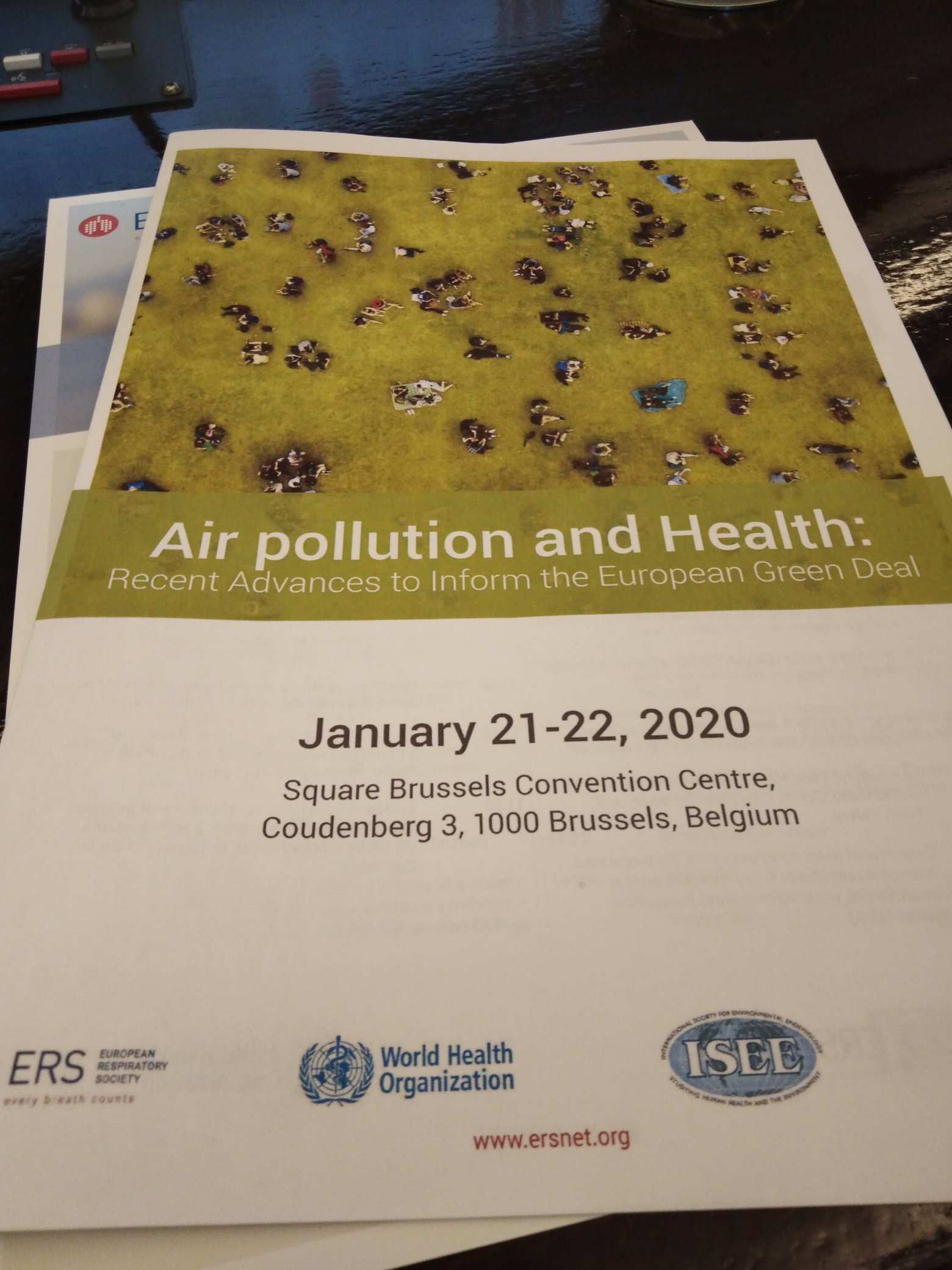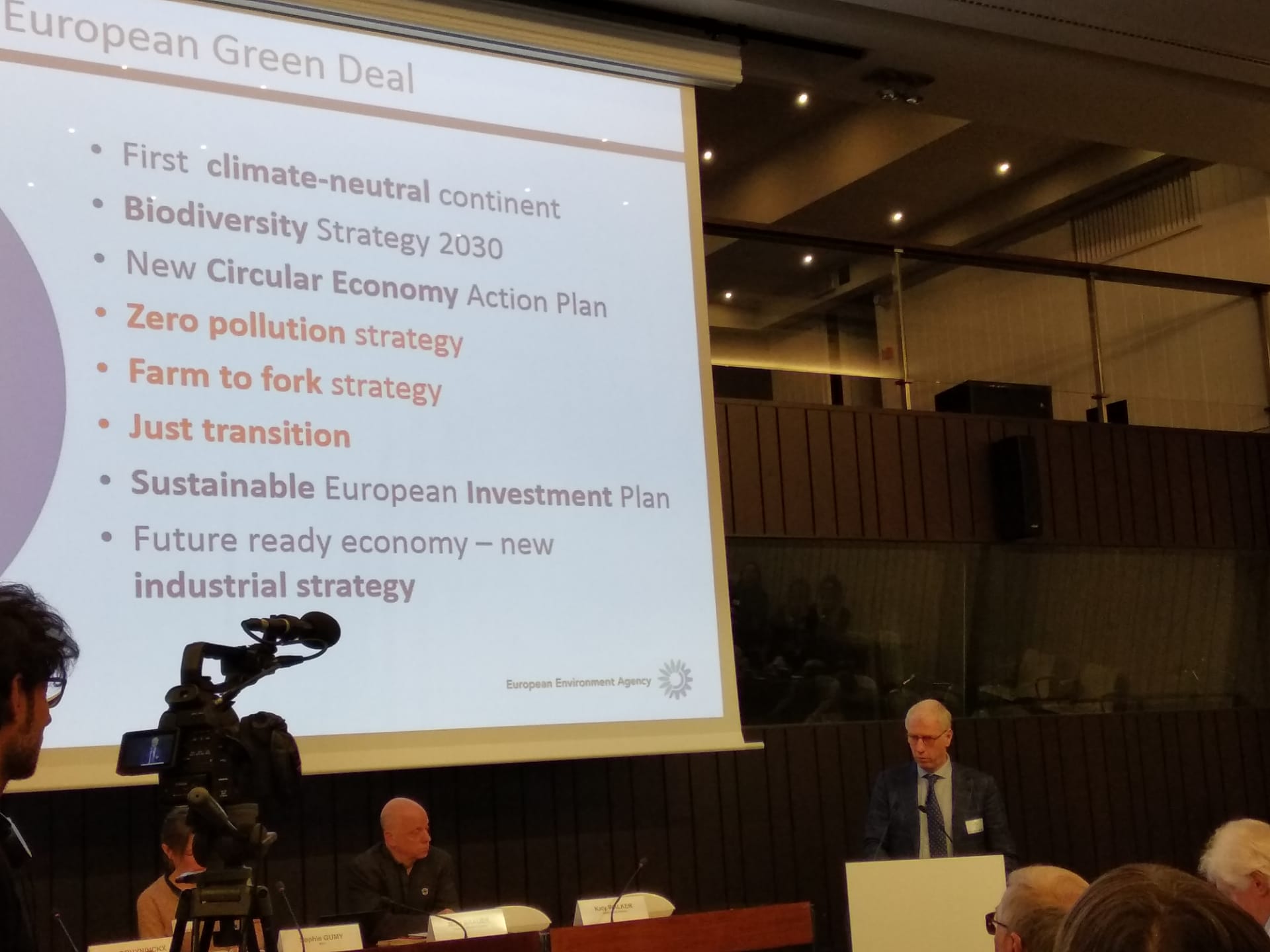On 21-22 January, EFA attended a conference on “air pollution and health: recent advances to inform the European Green Deal.”
The event which built around keynotes and moderated discussions, was organized by the European Respiratory Society (ERS), the World Health Organization (WHO), the International Society for Environmental Epidemiology (ISEE), and the Health Effects Institute (HEI).
Air pollution not an abstract problem – 400.000 premature deaths every year
Opening the conference, Barbara Hoffmann from ERS welcomed all participants and showed a rather depressing figure for kick-off: approximately 400.000 premature deaths occur due to air pollution every year.
In a video message, Virginijus Sinkevičius, European Commissioner for Environment, Oceans and Fisheries (DG ENV), consequently highlighted that air pollution is far from being an abstract problem, rather it affects everyone. He further noted that the European Green Deal announces the Commission to adapt a zero-pollution plan for water and soil in 2021.

EU Green Deal and current regulatory contexts
The first session, with panellists from among others DG ENV and the Commissions’ Directorate General for Health and Food Safety (DG SANTE) summarized the current EU and US regulatory contexts, against the backdrop of the European Green Deal.
Besides summaries on health, economic and social impacts of air-pollution, also results from the recently concluded fitness check on the ambient air-quality directives (AAQs) have been presented: As the Commission concludes, the AAQs are broadly fit for purpose, but there is still work to be done.
As part of this work, the Commission will propose to revise the EU air quality standards to align more closely with the WHO Air Quality Guidelines.
Air Quality standards – how low can we go?
Although ambient air pollution levels are declining in high-income regions, epidemiological studies report associations with health effects at levels below current standards. The second session therefore, discussed the scientific implications of those studies for risk assessment and regulation.
WHO Guidelines as recommendations to support informed decision making
Findings from recent key reviews on air pollution health effects from Europe and possible paths forward had been discussed in the third session. Dorota Jarosinska (WHO), introduced the status and process of the current revisions of the WHO Air Quality Guidelines.
As they had been discussed rather frequently during the event, Mrs. Jarosinska clearly distinguished the WHO guidelines as public health recommendations, based on an assessment of evidence. While the guidelines are not binding, they should rather support informed decision making.
The first day’s last session reviewed the latest science and benefits to inform the European Green Deal got highlighted. In the concluding panel discussion, questions from the audience focused on research findings, the Commissions’ work plans and addressed the urgency to act.
Health burden assessments and the need for more evidence-based policies
On the second day, Hans Bruyninckx of the European Environment Agency stressed the harmful effects of air pollution in health. He noted that emissions in the EU have decreased, mostly thanks to the policies in place. Yet they have not decreased equally across sectors, or across different regions. What is needed is systemic thinking, which is reflected by the recently published EU Green Deal.
Katy Walker of the Health Effects Institute discussed aspects of communicating the public health burden of air pollution. Interestingly, COPD ranks first in cause-specific mortality due to air pollution. She further showed that burden analyses play a critical role in identifying air pollution’s contribution. However, current estimates may understate burden and will change as new evidence emerges.

Key drivers of EU research on air pollution
In the last session, Laia Quiros of the European Commissions’ Directorate General on Research and Innovation (DG RTD) outlined the key drivers of EU research on air pollution: Evidence, public concerns, and global and European policy processes. From an EU research funding standpoint, most resources will be directed towards the zero air pollution action plan.
The conference concluded with a panel composed of representatives from various institutions and the research community. On behalf of the Council presidency, the Croatian permanent representative announced that his country will develop and adopt conclusions on air quality in March, on the basis of the AAQs fitness check and the EU Green Deal.